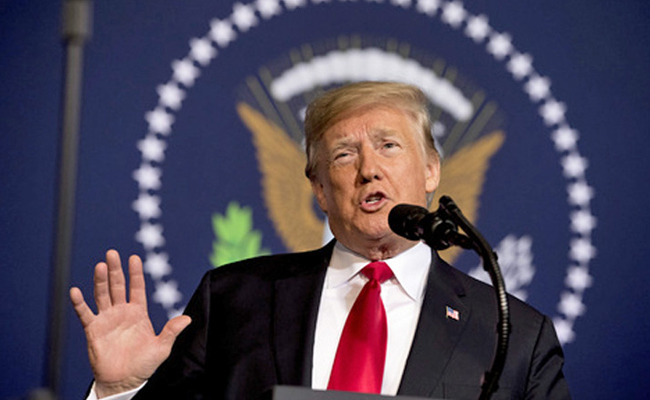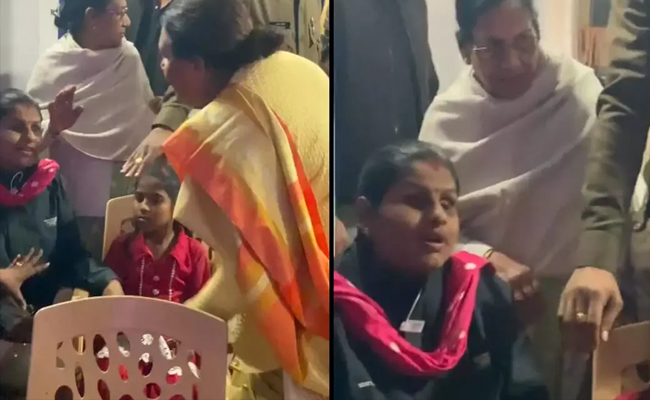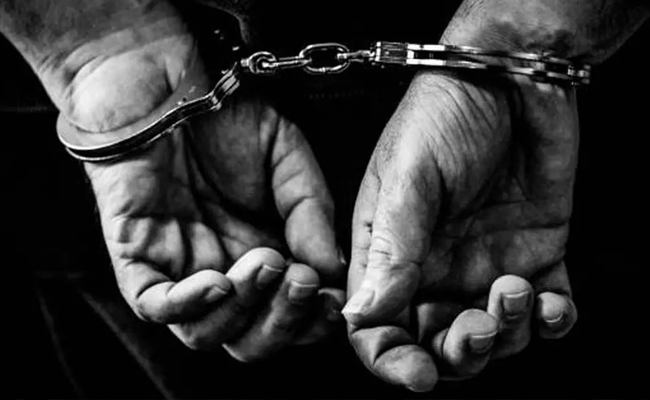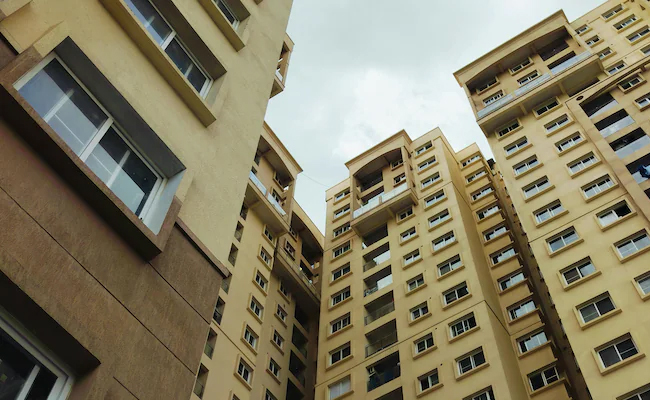Washington (PTI): Republican presidential nominee Donald Trump has launched a racially insensitive attack against Kamala Harris by questioning whether she is “Indian or Black”, drawing a sharp reaction from his Democratic rival who termed his remarks "the same old show" of "divisiveness" and "disrespect".
Trump, 78, falsely claimed Vice President Harris had only emphasised her Asian-American heritage until recently when, he claimed, "she became a black person".
“I’ve known her a long time, indirectly, not directly very much, and she was always of Indian heritage, and she was only promoting Indian heritage. I didn’t know she was Black until a number of years ago when she happened to turn Black, and now she wants to be known as Black," Trump said at the National Association of Black Journalists convention in Chicago on Wednesday, as the race for the November 5 presidential election gained momentum with opinion polls showing that Harris has narrowed the gap with her Republican rival.
"So I don't know - Is she Indian? Or is she black?"
Harris' mother is originally from India, and her father is from Jamaica.
As an undergraduate, Harris attended Howard University, a historically black school in Washington, and belongs to Alpha Kappa Alpha, the country's oldest Black sorority. She was also the president of the Black Law Students Association while studying at the University of California's law school in San Francisco, and a member of the Congressional Black Caucus during her time in the Senate.
When one of the journalists who was interviewing Trump on stage tried to tell him that Harris had always identified as Black and had attended a historically Black university, the former president continued: “I respect either one, but she obviously doesn’t. Because she was Indian all the way, and then all of a sudden, she made a turn, and she went – she became a Black person. And I think somebody should look into that too.”
Trump’s comments prompted immediate criticism.
Speaking at an event in Houston Wednesday for the Sigma Gamma Rho Sorority, a historically Black sorority, Harris told the crowd that "this afternoon, Donald Trump spoke at the annual meeting of the National Association of Black Journalists, and it was the same old show."
"The divisiveness and the disrespect, and let me just say, the American people deserve better."
Harris, 59, did not directly address the content of Trump's words but said that Americans "deserve a leader who tells the truth, a leader who does not respond with hostility and anger when confronted with the facts, we deserve a leader who understands that our differences do not divide us, they are an essential source of our strength."
Harris campaign communications director Michael Tyler earlier said the "hostility Trump showed on stage today is the same hostility he has shown throughout his life, throughout his term in office, and throughout his campaign for president."
"Trump lobbed personal attacks and insults at Black journalists the same way he did throughout his presidency — while he failed Black families and left the entire country digging out of the ditch he left us in," Tyler said. "Donald Trump has already proven he cannot unite America, so he attempts to divide us."
At the White House, press secretary Karine Jean-Pierre responded to Trump's jab at Harris, calling the former president's comments "insulting."
"As a person of colour, as a Black woman, who is in this position that is standing before you at this podium, behind this lectern — what he just said, what you just read out to me is repulsive, it's insulting," Jean-Pierre said.
"No one has any right to tell someone who they are, how they identify. That is no one's right. It is someone's own decision. It is — I'll add this — only she can speak to her experience."
Trump has a history of attacking his opponents on the basis of race.
He falsely accused Barack Obama, the country's first black president, of not being born in the US.
Trump attacked the former UN ambassador and his Republican primary opponent Nikki Haley by falsely claiming she could not be president because her parents were not US citizens when she was born.
Harris has faced a series of attacks since becoming the presumptive Democratic nominee. Republicans have criticised the decision, saying she was chosen only because of her race.
Tim Burchett, a Republican congressman from Tennessee, called her a "DEI vice-president" - a reference to diversity, equity and inclusion programmes.
On Wednesday, Scott pushed Trump to clarify whether he believed Harris was a "DEI hire". He replied: "I really don't know, could be."
Harris has described growing up engaged with her Indian heritage and often visited the country. Her mother also immersed her two daughters in the black culture of Oakland, California - where she was raised, she said.
Trump also attacked Harris' credentials during the discussion, saying she had failed her bar exam early in her legal career.
"I'm just giving you the facts. She didn't pass her bar exam and she didn't think she would pass it and she didn't think she was going to ever pass it and I don't know what happened. Maybe she passed it," he said.
Harris graduated from the University of California Hastings College of Law in 1989. The New York Times reported that she failed her first attempt and passed at the second. The state bar of California says less than half of those who sit the test pass on the first attempt.
Responding to Trump's comments, second gentleman Doug Emhoff said that the former president was “a worse version of an already horrible person” with his remarks.
“The insults..– it’s horrible, it’s terrible, it shows a lack of character – but it’s a distraction,” Emhoff said at a campaign fundraiser in Maine. “It’s about what’s at stake in this election.”
Arizona Senator. Mark Kelly, seen as a potential running mate for Harris, slammed Trump’s remarks, saying they were “the comments of a desperate, scared old man who is, over the last week especially, having his butt kicked by an experienced prosecutor.”
Let the Truth be known. If you read VB and like VB, please be a VB Supporter and Help us deliver the Truth to one and all.
Jabalpur: Anju Bhargava, vice-president of BJP's Jabalpur city unit, has come under sharp scrutiny, creating the ripples of political controvery in Madhya Pradesh, after a video surfaced online showing her physically assaulting a visually impaired woman inside a church.
The New Indian Express has reported that the said incident reportedly took place on Saturday (20 Dec) at a church in the Hawa Bagh area, which comes under the limits of Gorakhpur police station.
The video footage that has circulated widely on Monday shows Anju Bhargava, assaulting the blind woman in the presence of a police officer. In the video, Bhargava is seen shouting at the woman, twisting her arm and forcibly grabbing her face. The victim can be heard pleading to Bhargava to speak to her rather than resorting to physical violence. Also, we can hear Bhargava screaming, “will be blind in her next birth too”
ALSO READ: Woman arrested for theft, stolen gold articles worth Rs 32 lakh seized
According to The Indian Express reports, Bhargava entered the church, with members of several Hindutva affiliated organisations, alleging that the visually impaired children were being forced into religious conversion; But, the students present at the church have flatly denied all the allegations.
An unnamed police officer cited in media reports states that there was no evidence to support claims of forced religious conversion. The incident has since intensified political debate in the state, with opposition parties demanding accountability and action against those involved.





